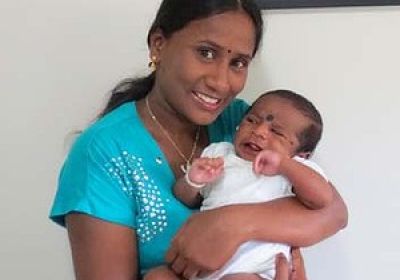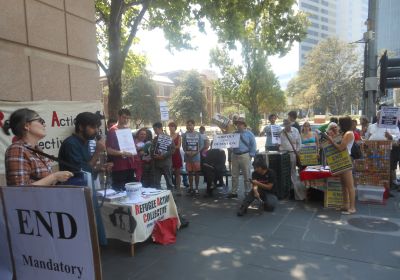
Last month, the High Court heard a case brought by lawyers for Ranjini, a Tamil woman who was accepted as a refugee but is being held in indefinite detention because ASIO considers her a security threat.
Ranjini is one of 47 people in this situation. They face the prospect of spending the rest of their lives in detention because ASIO claims that they are “likely to engage in acts prejudicial to Australia’s security”.
Ranjini’s lawyers said detaining people for life without charge, trial or conviction for any crime is illegal. The High Court has reserved its decision.
